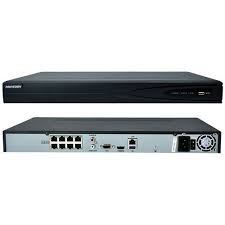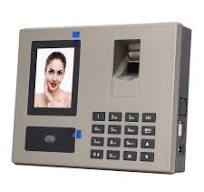Registration is a fundamental process that allows individuals or entities to officially sign up or enroll for a particular service, event, program, or membership. It serves as a formal way of collecting essential information from participants and establishing a record of their involvement.
Registrations are commonly required for various purposes, such as attending conferences, workshops, seminars, training sessions, webinars, and other events. They are also necessary for joining memberships in clubs, organizations, online platforms, and professional associations. Additionally, registrations play a crucial role in academic settings for enrolling in courses and educational programs.
During the registration process, individuals are typically asked to provide personal details such as their name, contact information, address, date of birth, and relevant preferences. Depending on the nature of the registration, additional information may be required to tailor the experience or ensure eligibility for participation.
One of the primary benefits of registration is that it helps organizers manage logistics effectively. By having accurate data about participants in advance, event planners can make necessary arrangements regarding venue capacity, materials needed, catering services, and overall event coordination. This ensures a smooth and organized experience for both organizers and attendees.
Furthermore, registrations often serve as a means of communication between organizers and participants. Through registration confirmations and updates sent via email or other channels, attendees can stay informed about important details such as event agendas, speaker profiles, session schedules, and any changes or announcements related to the registered activity.
In today’s digital age, online registration systems have become increasingly popular due to their convenience and efficiency. These platforms allow individuals to register quickly from anywhere with an internet connection and provide secure payment options for paid events or memberships. Online registrations streamline the process for both participants and organizers while reducing paperwork and manual data entry errors.
In conclusion, registration is more than just signing up—it is a key step in engaging with opportunities and communities effectively. Whether it’s attending an event or joining a group or program of interest, registering ensures that individuals can participate fully while enabling organizers to deliver seamless experiences tailored to their audience’s needs.
9 Essential Tips for a Secure and Accurate Registration Process
- Ensure all required fields are filled out accurately.
- Double-check your contact information for accuracy.
- Choose a strong and secure password to protect your account.
- Read the terms and conditions before agreeing to them.
- Verify your email address or phone number if required.
- Keep a record of your registration details for future reference.
- Follow any additional verification steps promptly.
- Do not use public Wi-Fi when registering to protect your information.
- Contact customer support if you encounter any issues during registration.
Ensure all required fields are filled out accurately.
When registering for any service or event, it is crucial to ensure that all required fields are filled out accurately. Providing correct information not only helps organizers effectively manage logistics and communicate important details but also ensures a smooth and hassle-free experience for the registrant. Inaccurate or incomplete information may lead to confusion, delays, or even disqualification from participation. By double-checking and verifying that all mandatory fields are completed with the right information, individuals can enhance their registration process and set themselves up for a successful engagement.
Double-check your contact information for accuracy.
When registering for any event or service, it is crucial to double-check your contact information for accuracy. Ensuring that your details such as email address, phone number, and mailing address are correct is essential for receiving important updates, confirmations, and communication regarding your registration. By verifying the accuracy of your contact information, you can avoid missing out on critical information and ensure a smooth and seamless registration process.
Choose a strong and secure password to protect your account.
When registering for an account, it is crucial to choose a strong and secure password to safeguard your personal information and prevent unauthorized access. A strong password typically includes a combination of uppercase and lowercase letters, numbers, and special characters to enhance its complexity and resilience against potential hacking attempts. By selecting a robust password, you can significantly reduce the risk of account breaches and protect your data from cyber threats, ensuring a secure online experience.
Read the terms and conditions before agreeing to them.
It is essential to carefully read the terms and conditions before agreeing to them during the registration process. By taking the time to review these details, individuals can fully understand the rights, responsibilities, and limitations associated with their registration. Terms and conditions often outline important information such as privacy policies, refund or cancellation procedures, usage guidelines, and legal agreements that participants must adhere to. Being informed about these terms ensures transparency and clarity in the registration process, helping participants make well-informed decisions and avoid any potential misunderstandings or disputes in the future.
Verify your email address or phone number if required.
When it comes to registration, one important tip to keep in mind is to verify your email address or phone number if required. Verifying your contact details adds an extra layer of security and ensures that the information provided during registration is accurate and up-to-date. By confirming your email address or phone number, you can also receive important notifications, updates, and confirmation messages related to the registration process, ensuring that you stay informed about any further steps or changes regarding your participation.
Keep a record of your registration details for future reference.
It is essential to keep a record of your registration details for future reference. By maintaining a record of the information you provide during registration, you can easily access important details such as event dates, login credentials, payment confirmations, and any specific instructions or requirements. This practice not only helps you stay organized and informed but also serves as a handy reference in case you need to revisit or verify your registration information at a later time. Keeping track of your registration details ensures a smooth and hassle-free experience whenever you engage with the registered service, event, or program.
Follow any additional verification steps promptly.
Following any additional verification steps promptly is crucial to completing the registration process smoothly and efficiently. These verification steps are often put in place to ensure the security and accuracy of the information provided during registration. By promptly responding to any requests for verification, such as confirming email addresses or providing additional documentation, participants can avoid delays in their registration approval and access to the desired service or event. Timely completion of verification steps also helps organizers maintain a high level of data integrity and security, ultimately enhancing the overall registration experience for all parties involved.
Do not use public Wi-Fi when registering to protect your information.
When registering for any service or event, it is crucial to prioritize the security of your personal information. One important tip to keep in mind is to avoid using public Wi-Fi networks for registration purposes. Public Wi-Fi networks are often unsecured, making it easier for cybercriminals to intercept and access sensitive data transmitted during the registration process. By refraining from using public Wi-Fi and opting for secure, private networks instead, you can significantly reduce the risk of unauthorized access to your information and protect your privacy while registering.
Contact customer support if you encounter any issues during registration.
When encountering any issues during the registration process, it is advisable to promptly reach out to customer support for assistance. Customer support teams are dedicated to providing help and resolving queries to ensure a smooth registration experience for users. By contacting customer support, individuals can receive timely guidance on troubleshooting technical issues, clarifying registration requirements, or addressing any concerns that may arise. Seeking assistance from customer support not only helps in resolving problems efficiently but also demonstrates a proactive approach towards ensuring a successful registration process.



